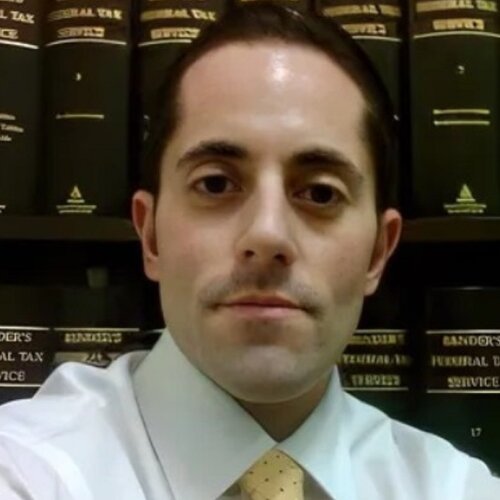Best Elder Abuse Law Lawyers in Boston
Share your needs with us, get contacted by law firms.
Free. Takes 2 min.
List of the best lawyers in Boston, United States
About Elder Abuse Law in Boston, United States
Elder abuse law in Boston, United States, is designed to protect individuals aged 60 and older from abuse, neglect, and exploitation. These laws address physical, emotional, or sexual harm inflicted on seniors, as well as financial exploitation and negligence. The goal is to provide a legal framework that helps prevent abuse and delivers justice for victims. Massachusetts has specific legislation addressing elder abuse, bolstered by federal regulations such as the Older Americans Act, which establishes programs and provides funding to combat elder abuse.
Why You May Need a Lawyer
There are numerous situations where you may require legal assistance related to elder abuse, including:
- Suspecting or witnessing abuse or neglect of an elderly individual in a nursing home or care facility.
- Concerns about financial exploitation by caregivers, family members, or others.
- Needing to report abuse or instituting legal action against perpetrators.
- Seeking guardianship or conservatorship to protect an elder's interests.
- Defending against allegations of elder abuse or exploitation.
- Navigating complex systems, such as Adult Protective Services or legal proceedings related to elder abuse.
Local Laws Overview
Massachusetts has its own set of laws regarding elder abuse, which align with federal guidelines and provide additional protections. Key aspects include:
- Mandatory reporting laws: Certain professionals are required to report suspected elder abuse to authorities.
- Definitions of abuse: Includes physical, emotional, financial abuse, and neglect, specifying what constitutes each type.
- Protection and advocacy: Legal provisions for temporary and permanent protection orders to safeguard elders.
- Penalties: Laws outline penalties for those convicted of elder abuse, which can include fines and imprisonment.
Frequently Asked Questions
What constitutes elder abuse in Massachusetts?
Elder abuse can include physical harm, emotional distress, sexual abuse, financial exploitation, or neglect of elderly individuals.
How can I report elder abuse in Boston?
You can report elder abuse to local law enforcement, Adult Protective Services, or through the Massachusetts Elder Abuse Hotline.
Who are mandated reporters for elder abuse in Massachusetts?
Mandated reporters include healthcare professionals, social workers, police, and anyone who focuses on elder services, among others.
What is the statute of limitations for filing a lawsuit regarding elder abuse?
The statute of limitations varies depending on the type of abuse, but typically, you may have up to three years to file a lawsuit from the date of discovery of the abuse.
Can family members be found guilty of elder abuse?
Yes, elder abuse can occur within family settings, and family members can be prosecuted if found guilty of abuse or exploitation.
What legal actions can be taken against perpetrators of elder abuse?
Legal actions may include criminal charges, civil lawsuits, restraining orders, and other protective measures.
How can I protect my elderly family member from financial exploitation?
Consider legal mechanisms like power of attorney, guardianship, or conservatorship, and regularly monitor their financial accounts for suspicious activity.
What resources are available for victims of elder abuse in Boston?
Resources include legal aid services, support groups, and advocacy organizations dedicated to elder care and protection.
Can emotional abuse qualify as elder abuse under local laws?
Yes, emotional abuse is recognized and can be pursued legally as it can cause significant psychological harm to elders.
What are the consequences for someone found guilty of elder abuse?
Consequences can include fines, imprisonment, loss of professional licenses, and civil damages.
Additional Resources
For further information and assistance, consider reaching out to the following resources:
- Massachusetts Executive Office of Elder Affairs: Provides information and resources to protect against elder abuse.
- Boston Bar Association Elder Law Project: Offers legal assistance to seniors.
- Nursing Home Ombudsman Program: Advocates for residents in nursing homes and investigates complaints.
Next Steps
If you suspect elder abuse or need legal assistance, consider taking these steps:
- Contact Adult Protective Services or local authorities to report abuse.
- Consult with an attorney specializing in elder law to evaluate your case.
- Gather and document evidence, including dates, times, witness statements, and any physical or financial documentation related to the abuse.
- Reach out to support groups or counseling services for emotional support.
Taking prompt action can help protect the victim and potentially hold the abuser accountable.
Lawzana helps you find the best lawyers and law firms in Boston through a curated and pre-screened list of qualified legal professionals. Our platform offers rankings and detailed profiles of attorneys and law firms, allowing you to compare based on practice areas, including Elder Abuse Law, experience, and client feedback.
Each profile includes a description of the firm's areas of practice, client reviews, team members and partners, year of establishment, spoken languages, office locations, contact information, social media presence, and any published articles or resources. Most firms on our platform speak English and are experienced in both local and international legal matters.
Get a quote from top-rated law firms in Boston, United States — quickly, securely, and without unnecessary hassle.
Disclaimer:
The information provided on this page is for general informational purposes only and does not constitute legal advice. While we strive to ensure the accuracy and relevance of the content, legal information may change over time, and interpretations of the law can vary. You should always consult with a qualified legal professional for advice specific to your situation.
We disclaim all liability for actions taken or not taken based on the content of this page. If you believe any information is incorrect or outdated, please contact us, and we will review and update it where appropriate.











